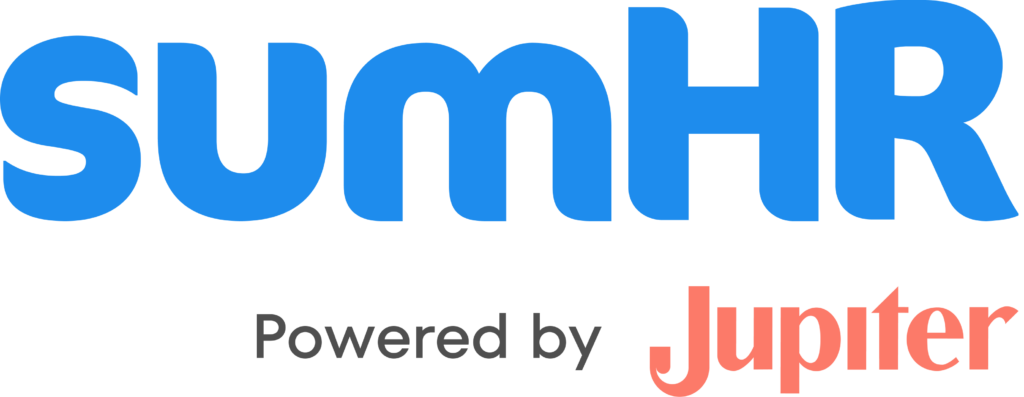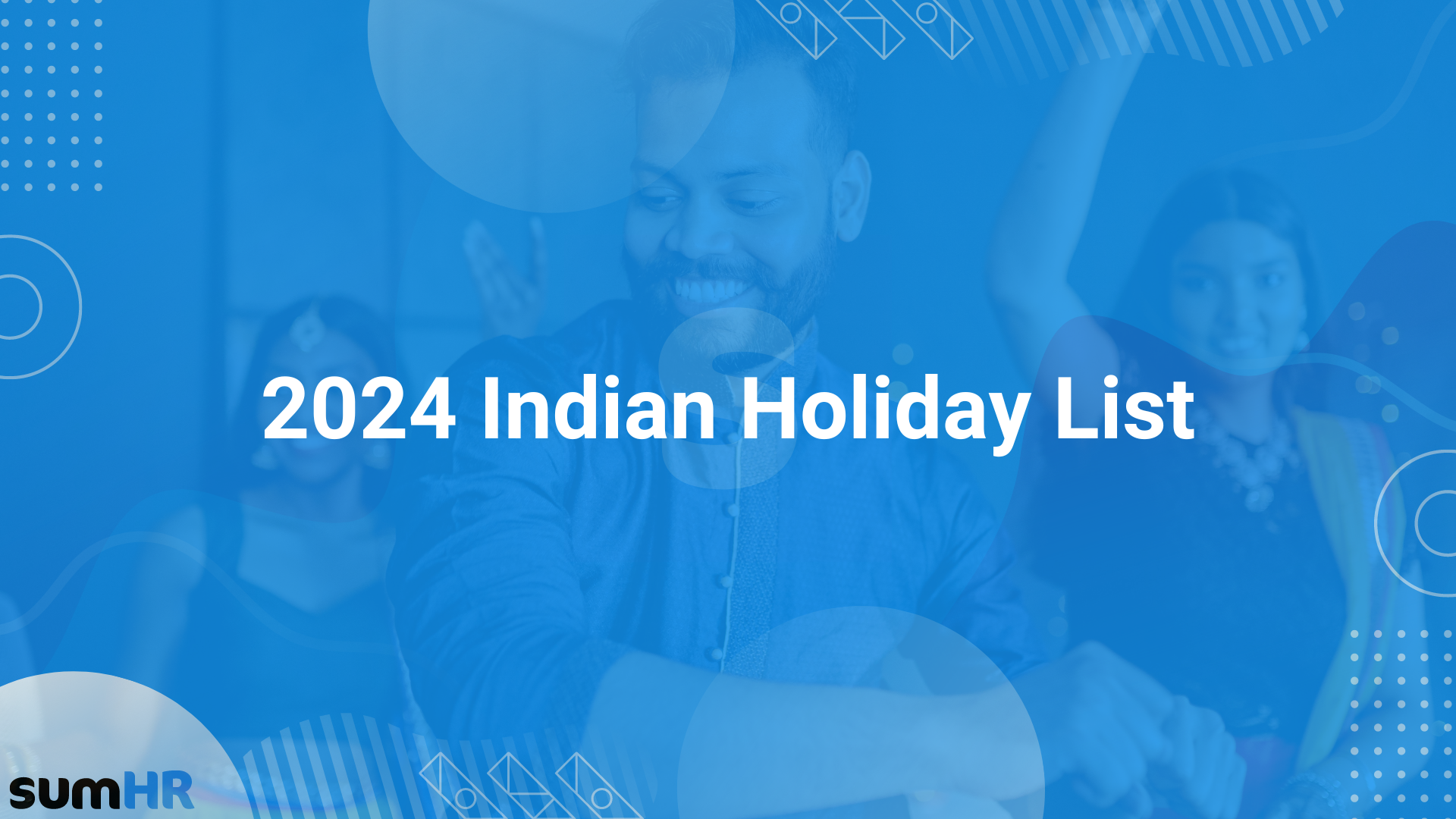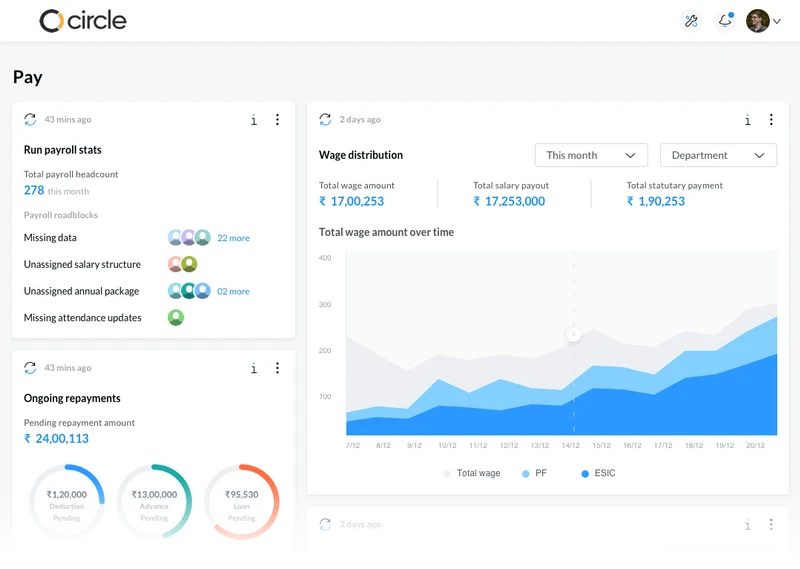A report by an Indian university reveals that 73% of Indian women quit their jobs after giving birth. Another survey states that 50% of working women of age less than 30 have to quit their jobs to take care of their children. The report also states that only 27% of those women manage to return to work. Because of the guilt and anxiety of juggling motherhood and career, many quit jobs within four months of rejoining, ultimately ending their professional life.
Employers need to understand that mothers in the workforce bring along with them an extraordinary set of benefits. From being a master in prioritisation and multi-tasking to having excellent communication and time management skills, mothers are blessed with some unique skill sets that can be incredibly beneficial for the organisation. They are incredibly strong, resilient, adaptable, and great at dealing with distractions. In this definitive guide, we will explore 7 effective ways to create a supportive environment for returning mothers.
7 Tips for Creating a Supportive and Balanced Workplace for Returning Mothers
In addition to their unique skill set, retaining working mothers can make your teams more diverse. In return, it will help the organisation brim with new perspectives that drive innovation and promote a flexible workplace culture. Here are 7 ways managers and employers can create a valued workplace culture to support new mothers and create a healthier work-life balance for all:
- Flexible Work Schedule
Returning to work post maternity leave can be a stressful time, both physically and mentally, as the body and mind adjust. One of the key things about creating a supportive culture is to maintain flexibility. Offering flexible hours for work for mothers after maternity leave is one of the crucial HR roles and responsibilities. It includes part-time work opportunities, work-from-home options, flexible working hours, and more.
A flexible work arrangement allows mothers to balance work and family duties like attending to their children’s needs and more. Thus, it reduces mothers’ stress and anxiety while they are at work and encourages them to return to work with renewed enthusiasm and dedication.
- Breastfeeding Facilities at the Workplace
Providing support for breastfeeding mothers who are returning to work post-maternity leave is of utmost importance. Managers can ensure that mothers are given privacy and designated breastfeeding rooms, which protect them from distraction and an environment where they can comfortably pump milk. Furthermore, the following facilities may be provided for supporting lactating mothers:
- A little extra time or regular breaks for mothers to express milk.
- Provision of a clean, warm, private room (not the toilet) and breast pumps for expressing
- Provision of a clean, warm, and private room and breast pumps for expressing
- On-site Daycare Facility or Creche
Many companies in India offer an on-site daycare centre. These facilities allow mothers to leave their children in a safe area or space when they are at work. This way, working mothers can be close to their children, ensuring peace of mind and reduced stress levels. As a result, mothers can focus on their work, knowing that their child is safe and just a few steps away.
The company-sponsored childcare facilities for working mothers are a great way of fostering a friendly and nurturing environment for the child. In some cases, employers may not be able to accommodate a crèche at the workplace. However, they can make efforts to make a deal with a nearby daycare centre.
- Family-Friendly Policies
The first year of the baby is the most crucial phase in his/her life. It includes several milestones, and with each milestone, there comes the responsibility of spending more time with the baby. Employers should establish family-friendly policies to accommodate mothers returning to work after maternity leave. A family-friendly policy may include paid time off for sick children, emergency childcare leaves, and extended or shared parental leave.
These policies can facilitate mothers overcome the apprehension of being unable to spend time with their children in case of a medical emergency. To further support working mothers, employers can consider providing additional financial support to help cover childcare costs such as medical expenses reimbursements, daycare facilities and more.
- An Opportunity to Re-learn
Mothers coming back to work after a maternity leave period may require a refresher course or skill development training to get up-to-date with work requirements and help them redefine their career goals. The HR managers should conduct training sessions and support mothers returning to work by educating them with the essential resources, knowledge, and personnel. It will not only enhance the morale of the mothers and increase their confidence level but also help them transition back into the workplace more easily.
- Mental Health Support
Returning to work after maternity leave can be an overwhelming and stressful experience for working mothers. It increases the need for mental health support. HR managers can offer mental health support to returning mothers to help ease their transition to work.
The support may include counselling sessions, employee assistance programs (EAPs), or providing resources specific to mental health support. By ensuring mothers are mentally stable, they can navigate a work-life balance effectively, promoting an encouraging work environment.
- Positive Feedback and Recognition
According to a report, 53% of the employees are more likely to stay in the company if given undue recognition. The Human Resource Management department can implement employee recognition programs that recognise the work and commitment of mothers returning to work post-maternity leave. It encourages mothers to continue working harder to achieve their goals, contributing to overall company success. Positive feedback also increases employee motivation, promoting an encouraging work environment where employees feel appreciated and valued.
When you ease a working mother’s return, they feel more excited to come back to work. Help them feel more valued as an employee, and you can see a great level of commitment at work by them. Showing all moms in your workplace that you value their role in the organisation can help employers retain top talent, attract other qualified mothers and greatly impact their overall morale and productivity.
Summing Up
Mothers returning to work after maternity leave have unique requirements that necessitate an inclusive and supportive work environment. As an organisation, it should be ensured that mothers feel supported and appreciated, helping them reduce their stress levels and increase productivity. The proactive involvement of HR managers in fostering an encouraging workplace ensures the retention of working mothers, promoting a diverse and inclusive workforce, positive work-life balance, and overall company growth.
sumHR is one such partner that assists you with all your HR activities, such as payroll processing, expense reimbursements, online attendance monitoring and much more. The HRMS software performs a variety of functions and acts as a platform that seamlessly integrates and manages several routine HR processes in an organisation.








